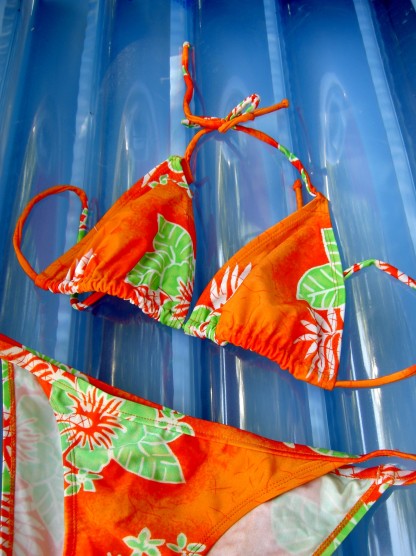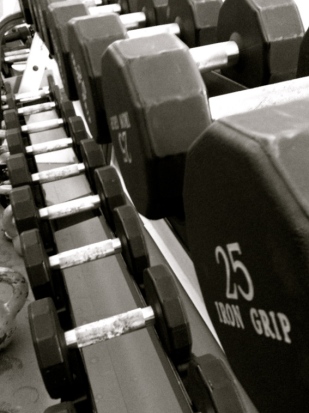Men and women spend an enormous amount of time using negative self-talk to minimize, judge and criticize themselves. Most people aren’t even aware of how incessantly this internal tyrannical tape plays. Think about it in your own life – how much negative self-talk to you engage in? If you engage in any, it’s already too much!
I decided to reach out to a bunch of women and ask them what they love about their bodies and why. While this question was easy for some, it posed a challenge for others.
Here are their unedited responses. After you read them, I encourage you to take a moment to pause, reflect, answer the same question and give yourself some love! Feel free to share your love in the “comments” section below!
What do you love about your body and why?
Wow. My gut response was so overwhelmingly negative – I love NOTHING! – that now I have to do this and come up with a list, not just for you, but for me.
I have always wanted to be able to fold over and touch my toes… I have discovered ballet barre and now I can!!!
Today I love my legs because they are strong and powerful and look super cute in my patterned tights right now!
I love that my body carried my children and gave them life. When I see my stretch marks and scars I try to remind myself of that rather than pick my body apart.
I love my body because it is made of the same stuff as the stars we wish on. It allows me to dance and move out into the world with you. My female body is so beautifully complex it reminds me that it has allowed for all human life to exist. Now how could I hate on that?
This is a really hard task and cause for a great deal of reflection. I think it has different meanings for each age and stage and for me causes me to look around and internalize all that is happening around me. I love my body because (so far) it is keeping me healthy and whole. It is allowing me to maintain my family and home, and giving me the opportunity to actively engage with those I love. My body is giving me the gifts of running in the park with my grandchildren and taking an 11 mile walk with my daughter, when we thought we were going for a stroll. How lucky I am. Thanks for affording me this wonderful time for reflection. Yes we take so much time in our lives using “fat talk” and hating our bodies….but rarely do we hug ourselves to say thank you.
I love that my body is so strong and resilient. It really doesn’t fail me and I feel blessed. I love that it’s petite but still womanly, not skinny. On a more superficial level I love my flat stomach.
My instinctual answer would be my smile and laugh because that is what most people recognize about me which I find is a really nice thing, actually cause it exudes more than an exterior appearance.
I love that my body is strong and healthy!
I love that my body can dance because I am never happier than when I am dancing.
I can touch and feel and love up my babies.
What I love about my body is that it has/had the miraculous ability to grow a child! Despite the changes from my pre-baby body, every time I see the differences in my body now, as a mother, I look at those changes with gratitude. I think about my body as having the ability to grow an adorable and wonderful little boy! What a wonderful thing!
I love my legs because they are strong, take me to places, let me dance, and keep me grounded.
As a mother of two daughters that mean the world to me, I am blessed to have a body (regardless of what it looks like) that has allowed me to produce and care for my two precious girls.
My cleavage.
I love my lats! I used to be upset that they make it tough for me to find dresses that zip up all the way. But, then I realized that without them I couldn’t do pull ups. I don’t know a lot of women who can do pull ups so I will keep my lats and stick to skirts, woo!
I love my body because it’s strong and unique, and it hasn’t failed me yet.
One thing that I really love about my body is that it is strong. I like to feel the muscle tone in my legs and ass. It feels good to think about our assets for a change.
I love that my body could still support me in a headstand when I was 8½ months pregnant! I feel so healthy and strong knowing I can support myself and my little guy now whether he’s inside or outside of me because of all my years of yoga and Pilates training.
I love that my body is able to move and engage in activities that I love to do.
I actually do love how it can grow in strength and stamina, even sometimes when I am not initially convinced that it can.
The one thing I love about my body are my legs, because they are long and somewhat fit.
This feels weird but here goes: I like my feet. I was always too klutzy to wear heels, but as a result nothing is misshapen or bent or bony growth where it shouldn’t be. I actually like my rear. A little dimply now but still shapely. Collarbone — nicely defined. Veiny hands and arms like my dad’s, so I’m partial to them.
Right now, I LOVE my belly!! It’s huge but I’m growing another little person inside. And yes, with the big belly comes some extra cushioning, which can be, at times, harder to accept, but I know that all of it is for a higher purpose – to create a healthy, happy and strong baby!
I’m learning to love that my body is mine and unique to me.. comparisons need not apply!!!
I have loved my body most when it was doing something–skiing, surfing, yoga, Zumba…..having a BABY. That is when I am grateful not critical.
I love my collar bones. They make me feel sexy.
When I stop and think about it, what I truly love about this body that has carried me through this life so far for better or worse for the last 40 years is that it is absolutely uniquely mine with all of its quirks, beauty and perfect imperfections. It’s been the vehicle through which my persona, spirit and soul has had the good fortune to experience everything from the extraordinarily mundane to the awe and the profound and I am utterly grateful for its functionality and intuition and guidance as well as all of its strength, exhaustion, muscle and flab, power and flexibility, aches, pains, tension and the relaxing, the calming, the sheen and the freckles and wrinkles, and yes even the wrinkles… ok well im still practicing with those 😉
At the age of 36 I now love more than anything else that my body has the capability of growing life. When I was younger loved the freedom of movement, and ability to fully control my actions. While I still love those things, giving up control to let someone else grow is my amazement.
A few years ago I probably said I love my arms, abs, legs, butt, strength. Since not being as active and able to workout like I used to, not eat the same as I used to and with the medication I am on….my body has changed. I am feeling better mentally than I was last year as I am learning to love me and my body again… but it has been a struggle. I was so mad at ‘my body’ for failing me. I was so angry and felt like my healthy lifestyle was a total waste. I am thankful now, and think differently. If I didn’t have the healthy lifestyle I would have been more ill and unable to deal with this darn Lupus. I loved the body I created from working out and eating well. To be honest, I feel like I have lost my identity as a trainer. My body was proof of my lifestyle. Sounds crazy but this is how I feel. In the last few months I have made some mental breakthroughs and am learning that I am just as strong (even stronger) than I ever was. I work out daily and do what I can. I always eat healthy and that is all I can do.
What do I love about my body? My smile and positive outlook.
I love my body because it carried and delivered my children with such health and perfection, and it now allows me to hug them and chase them and carry them and love them. I am so grateful to my body for allowing me to do this that I feel like I owe my body lots of love and, in return for all it has done for me, I always really try to take very good care of it.
I love that my body has survived two major surgeries, adapted to the complications, and ultimately healed itself. I am truly amazed at its response to trauma and feel blessed that my body didn’t fail me and gave me second chances.








